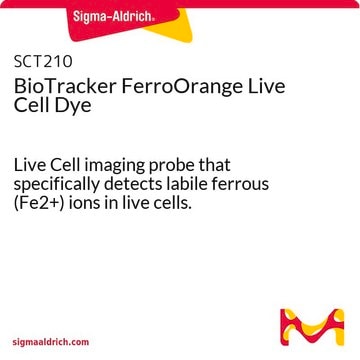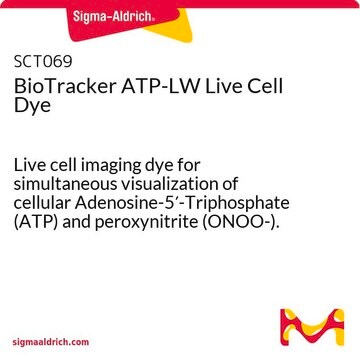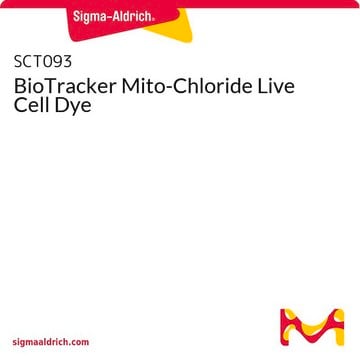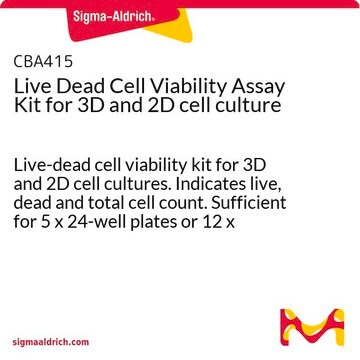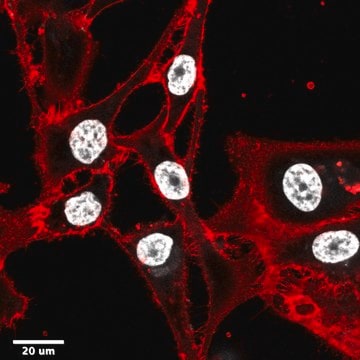SCT068
BioTracker DUAL dUTPase Live Cell reporter
Live cell probe for activity of cellular enzyme deoxyuridine triphosphatase(dUTPase) involved in deactivation of damaged nucleotides. The probe acts as a luciferase luminescencereporter of dUPTase.
Sign Into View Organizational & Contract Pricing
All Photos(1)
About This Item
UNSPSC Code:
12352207
NACRES:
NA.47
Recommended Products
form
lyophilized
technique(s)
activity assay: suitable
detection method
chemiluminescent
General description
Nucleotide surveillance enzymes play important roles inhuman health, by monitoring damaged monomers in the nucleotide pooland deactivating them before they are incorporated into chromosomalDNA or disrupt nucleotide metabolism. Deamination ofcytosine, leading to uracil in DNA and in the nucleotide pool, can bedeleterious, causing DNA damage. The enzyme deoxyuridine triphosphatase(dUTPase) is the sole enzyme that cleanses the nucleotide pool of deaminated cytosine. Measuring the activity of this enzyme is importantboth in basic research and in clinical applications involving thispathway.The BioTracker DUAL dUTPase live cell probe is a luminescence probe that specifically reports on dUTPase activity in real time. The probe is a chimera of dUTP and ATP. dUTPase enzyme accepts the DUAL probe as an efficient substrate and upon hydrolysis releases ATP, which is detected sensitively by luciferase luminescence.Note: Luceferin and luciferase enzyme are needed to detect ATP released by hydrolysis, but are not included in this product. Spectral Properties:Luminescence intensity.Research Category:Live Cell Dye
Disclaimer
Unless otherwise stated in our catalog or other company documentation accompanying the product(s), our products are intended for research use only and are not to be used for any other purpose, which includes but is not limited to, unauthorized commercial
Storage Class Code
11 - Combustible Solids
WGK
WGK 3
Flash Point(F)
Not applicable
Flash Point(C)
Not applicable
Certificates of Analysis (COA)
Search for Certificates of Analysis (COA) by entering the products Lot/Batch Number. Lot and Batch Numbers can be found on a product’s label following the words ‘Lot’ or ‘Batch’.
Already Own This Product?
Find documentation for the products that you have recently purchased in the Document Library.
Our team of scientists has experience in all areas of research including Life Science, Material Science, Chemical Synthesis, Chromatography, Analytical and many others.
Contact Technical Service